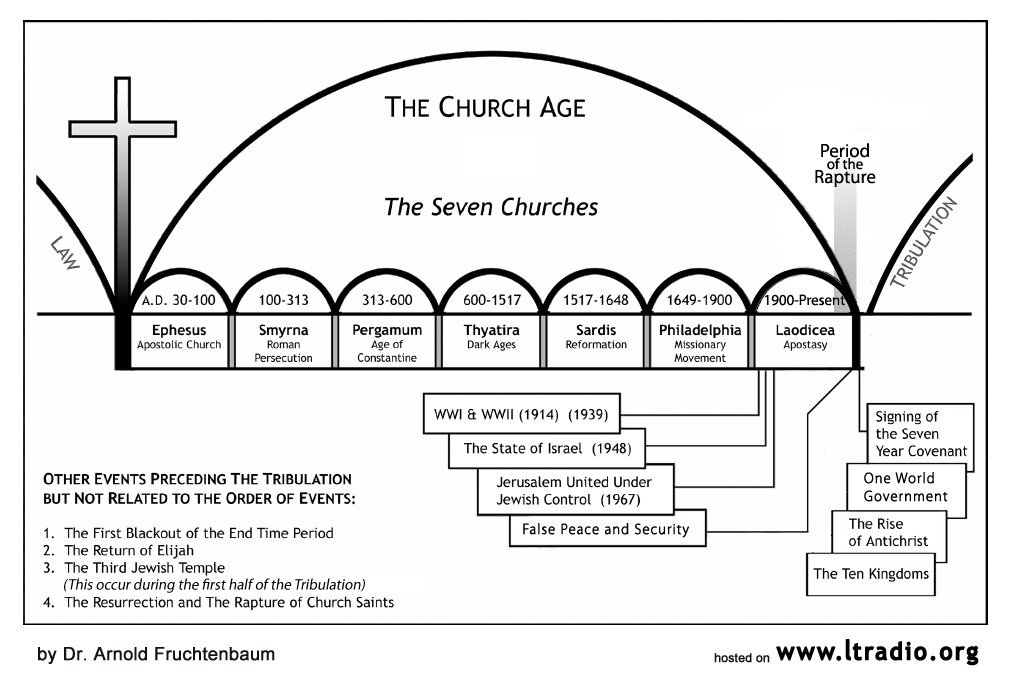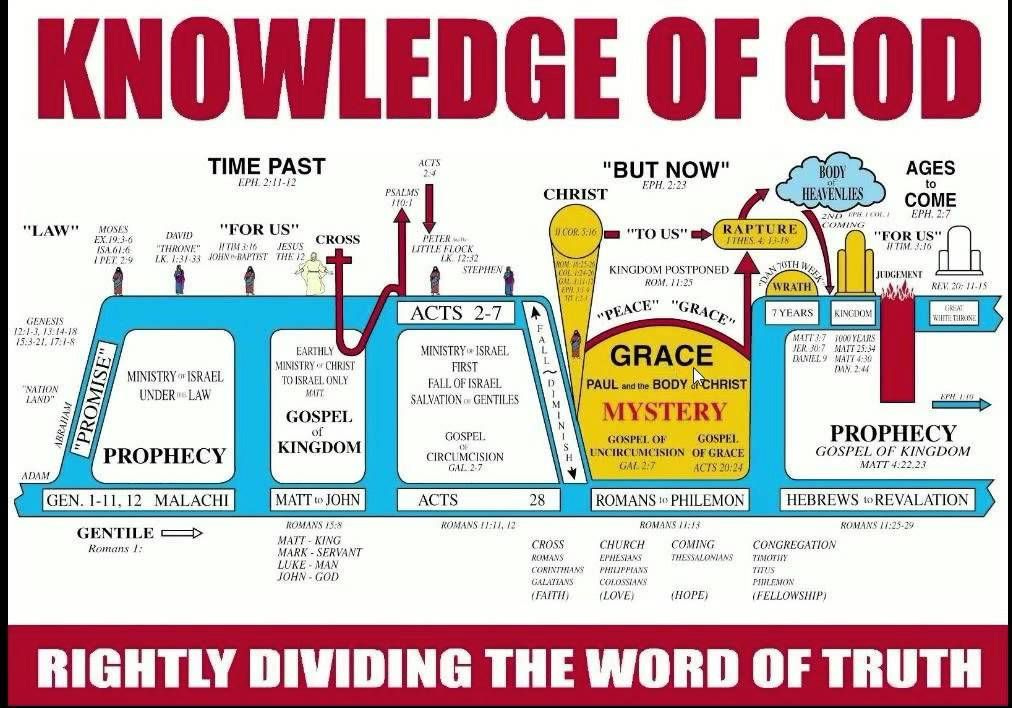What is the Church Age?
“An “age” is an historical period of time or an era. Some historians divide human history into many epochs and name them according to their defining characteristics: Middle Ages, Modern Age, Postmodern Age, etc. Biblical history, too, can be divided into different eras. When those divisions emphasize God’s interaction with His creation, we call them dispensations. More broadly, biblical history can be divided into two periods, roughly following the division of Old and New Testaments: the Age of the Law and the Church Age.
The Church Age is the period of time from Pentecost (Acts 2) to the rapture (foretold in 1 Thessalonians 4:13-18). It is called the Church Age because it covers the period in which the Church is on earth. It corresponds with the dispensation of Grace. In prophetic history, it falls between the 69th and 70th weeks of Daniel (Daniel 9:24-27; Romans 11). Jesus predicted the Church Age in Matthew 16:18 when He said, “I will build my church.” Jesus has kept His promise, and His Church has now been growing for almost 2,000 years.
The Church is composed of those individuals who have by faith accepted Christ Jesus as their Savior and Lord (John 1:12; Acts 9:31). Therefore, the Church is people rather than denominations or buildings. It is the Body of Christ of which He is the head (Ephesians 1:22-23). The Greek word ecclesia, translated “church,” means “a called-out assembly.” The Church is universal in scope but meets locally in smaller bodies.
The Church Age comprises the entire dispensation of Grace. “The law was given through Moses; grace and truth came through Jesus Christ” (John 1:17). For the first time in history, God actually indwells His creatures, permanently and eternally. In other dispensations the Holy Spirit was always present and always at work, but He would come upon people temporarily (e.g., 1 Samuel 16:14). The Church Age is marked by the Holy Spirit’s permanent indwelling of His people (John 14:16).
Scripture makes a distinction between the nation of Israel and the Church (1 Corinthians 10:32). There is some overlap because, individually, many Jews believe in Jesus as their Messiah and are therefore part of the Church. But God’s covenants with the nation of Israel have not yet been fulfilled. Those promises await fulfillment during the Millennial Kingdom, after the Church Age ends (Ezekiel 34; 37; 45; Jeremiah 30; 33; Matthew 19:28; Revelation 19).
The Church Age will end when God’s people are raptured out of the world and taken to be with the Lord (1 Corinthians 15:51-57). The rapture will be followed in heaven by the Marriage Supper of the Lamb (Revelation 19:6-9) as the Church, the Bride of Christ, receives her heavenly reward. Until then, the Church carries on in hope, exhorted to “stand firm. Let nothing move you. Always give yourselves fully to the work of the Lord, because you know that your labor in the Lord is not in vain” (1 Corinthians 15:58).”
--https://www.gotquestions.org/church-age.html





